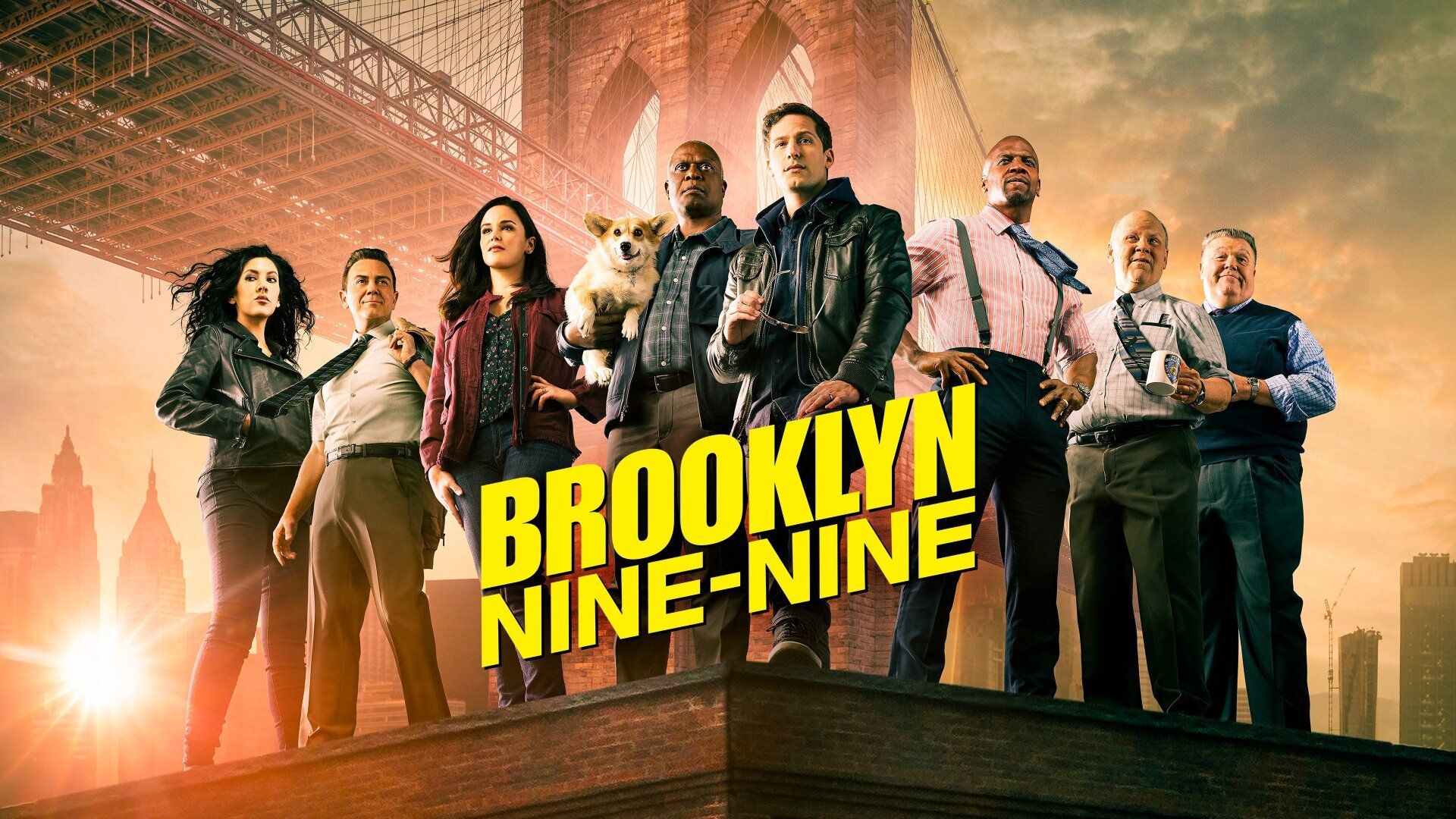#iDare Blog: By young people, for young people
Total War Warhammer (2016)
Cast your mind back to 2016: Trump was becoming president, Sony was making a mistake with Ghostbusters, news of a celebrity’s death was occurring on an almost weekly basis and what should have been final last gasp of Warhammer Fantasy and Total War start their journey into becoming the greatest modern RTS trilogy.
Total War and Warhammer
Before I get into the game, I should explain both franchises. Warhammer (or Warhammer Fantasy) is table top game set in a Lord of the Rings inspired world with magic, monsters and fantasy races. While Total War is a hybrid Real Time Strategy (RTS) and Turn Based Strategy (TBS) historical anthology game series that has been around for almost 2 decades, it tries to be authentic to the time period they adapted and somewhat grounded with your generals not being one-man armies like in most RTS.
So, you have a historical game series jumping from historical to fantasy, which should have raised a few red flags already, but there’s more. The 2 previous Total War games, Rome 2 and Atilla, are considered tremendous failures with one being a glitchy mess at launch and the other is a survival Total War game that wasn’t advertised as a survival Total War game. Okay so what about the Warhammer side? Well Warhammer was replaced by Age of Sigma due to declining sales the previous year and Warhammer fantasy games didn’t tend to be big success.
So with this many red flags, why was the hype for the 3rd game so strong?
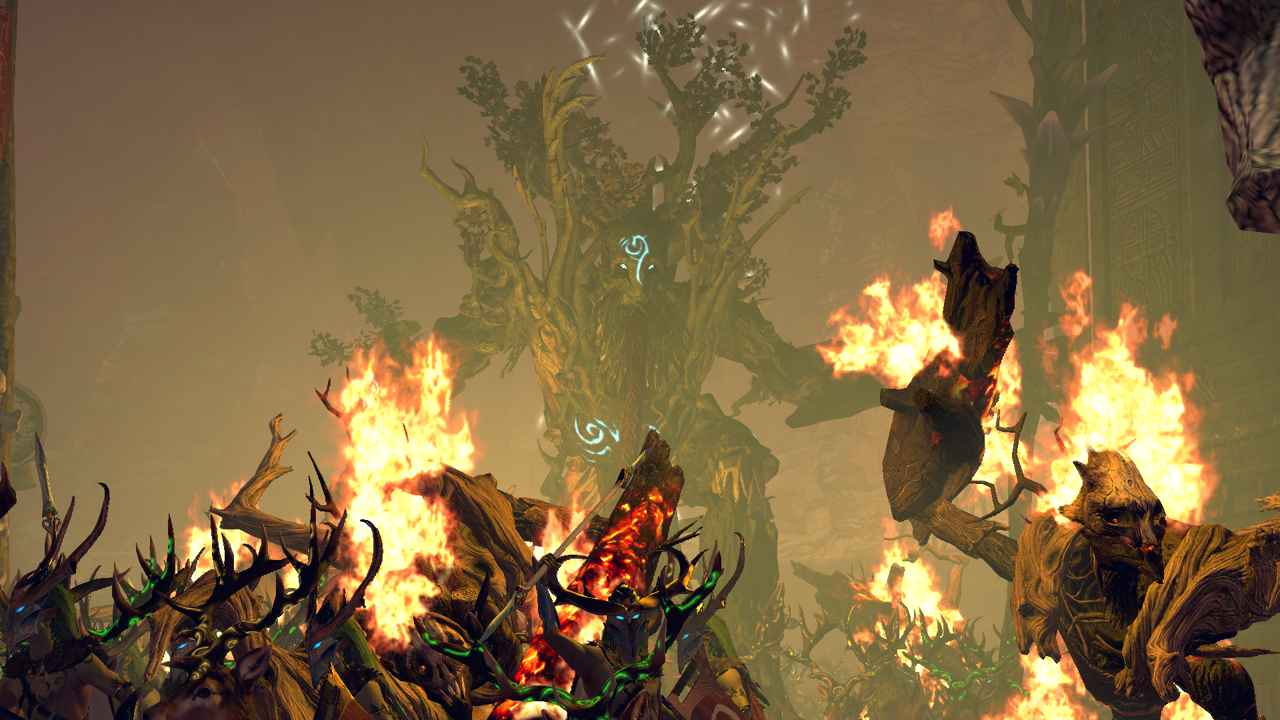
The Good, the Bad and the Boring
The Campaign mode is the TBS side of all Total War games and the main highlight: you select a faction, build an empire, meet the victory conditions and then end the campaign when you feel like it. The RTS part comes in when an army attacks settlements or other armies, these battles are more realistic than standard RTS battles and are comparable to an epic battle from a film or TV show. What Warhammer adds to Total War is that some of the factions are now fantasy races, so they all act and feel differently. The Empire are the least fantastical faction and are good for new player as they’re a jack of all trades with their unit roster and can counter most other factions, they also start next to minor factions which are unlikely to declare on them straight away. While the Vampire Counts are a faction of undead so none of their units feel fear and cause moral damage in the units of the living, they can also recruit units by raising the dead in campaign. Their weaknesses are: they have no range units and are weak to armies with a lot of range units, they need to spread Vampiric Corruption in campaign or their armies will take damage and their settlements will rebel if it isn’t high enough, if the leader of an army dies during battle then the army also slowly dies, finally they start out next to minor factions who are likely to declare war on them. But the Vampire Counts are my favourite faction in the game.

You may have noticed that I have avoided talking about the story so far, well that’s because there isn’t one really. You are a faction within the European inspired continent known as “the Old World” and the reason why they want to build an empire is explained by the faction’s opening cinematics. The Empire are the light of human civilisation and are trying to survive. Bretonnia is a stereotypical fantasy knight faction all about honour and chivalry. The Dwarfs want to restore their empire’s glory. The Vampire Counts seek to dominate the living. The Orcs are a naturally savage race who love to fight and only care about fighting. Warriors of Chaos want to bring ruin to civilisation in the name of the Dark Gods and are the big bad you will fight against when you occupy, sack or raze a certain number of settlements. Beastmen also wish to bring ruin to civilisation like Chaos but are doing it through guerrilla warfare. The Wood Elves are trying to save their god-tree by leaving their woods and cleaning the world in blood. Norscans are Fantasy Vikings who see the entire continent as weak but wealthy. There are also quest lines that end with a battle with scripted events like reinforcements arriving to aid you or your enemies, but honestly the game’s mechanics carry it enough that the Campaign is intriguing despite the lack of story. Sure, there can be moments during the campaign where a battle doesn’t happen for a 5 turns and I will admit that can be boring, yet as I spend time wondering where are your enemies and planning your next big war, I didn’t feel like stopping the game until I felt satisfied. But there are things that I hate about this game.
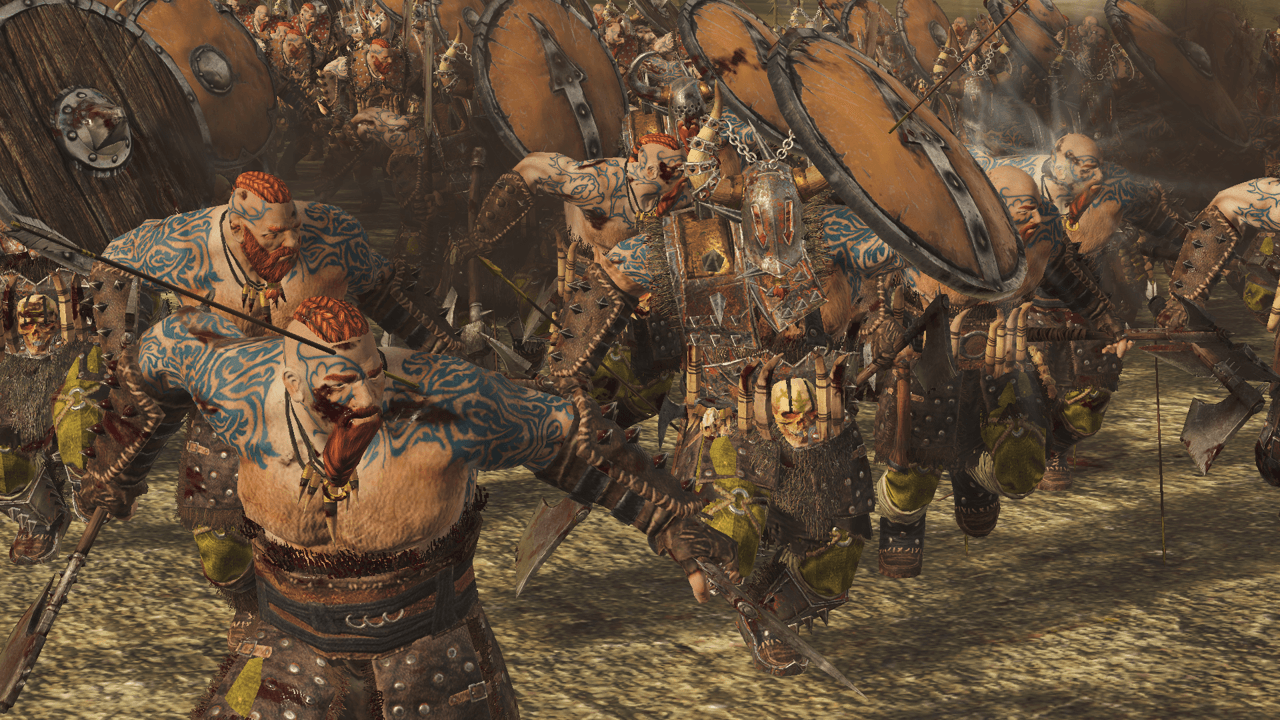
Let’s start with the obvious, sieges and settlement battles. In previous total war games: a settlement battle would involve defenders deploying within a small town and the attackers are able to deploy anywhere around it, if the settlement is walled the defenders protect a city from the attackers who have spent a few turns building stuff like siege towers or battering rams. In Warhammer, you fight a normal battle, which is fine but the garrisons of factions don’t change, so it’s literally the same battle which favours the attackers because they brought the better army. But what they did to sieges is almost offensive to me, there are about 5 different types of siege map that get reskins depending on what faction is defending and they’re all just a wall where the only tactic of the attacker is to rush it as the defender’s towers have unlimited rang and ammunition. The thing I really hate about them is that the maps feel like a fantasy city, but the playable map only extend into a small neighbourhood and the city is lost if the attacker wins this one battle. Thank the Dark Gods that this issue is fixed in Warhammer 3.

Another issue that bothers me about the game but not as much as sieges is regional occupation because you can mostly ignore it. Basically, there are places in the lore of Warhammer that some factions don’t or can’t live in, so for this game they made it so that you can’t occupy some settlements if it’s not your region. The problem is if someone from another region declares war on you, the game loses that build an empire aspect as you and the AI can do is destroy each other’s settlements. I probably wouldn’t mind if ruins still counted as mine or if I could buy back my lost settlements from other human region factions. Thank the Dark Gods again that settlement trading is coming to Warhammer 3. I should also mention that regional occupation got thankfully replaced with the Climate mechanic in Warhammer 2.

With all this out of the way, what do I rate it? Well, it’s complex…
You might ask: “how can it be complex? Do you like the game or not?” Which the answer is yes and I would recommend buying it… but I don’t recommend playing it. You see Warhammer 2 has a campaign called “Mortal Empires” which allows you to play Warhammer 1 but with the improvements the sequel made and most of the old factions have been overhauled to be more fun. The only limitation to Mortal Empires is that you have to own Warhammer 1 to play it. So yes, it’s a good game but there’s a better one you can play instead.
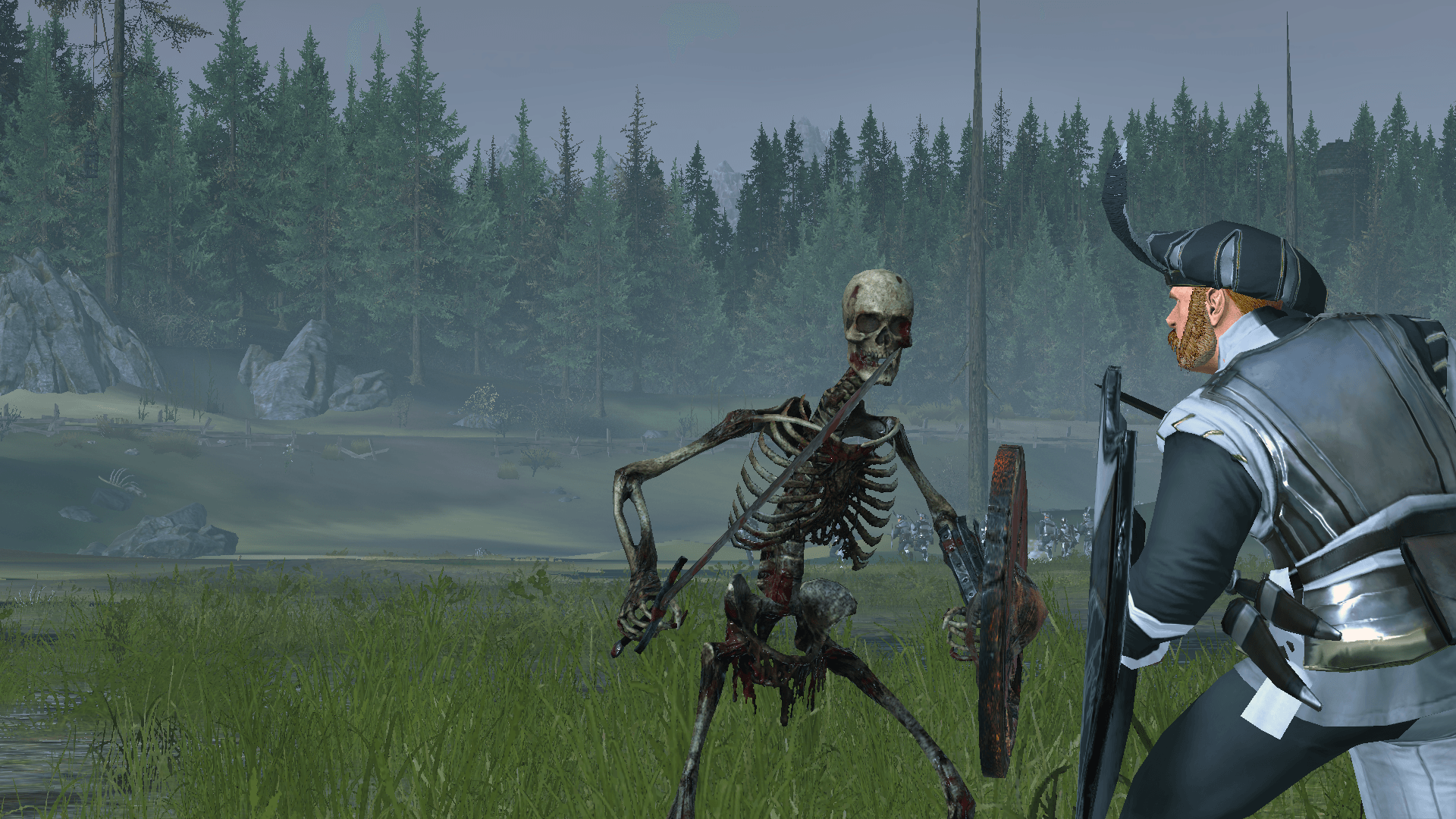
Overall, I would recommend Total War Warhammer 2 more than 1. The reason why this review is about the 1st game is because the 3rd game is out and I personally believe that it’s important to look back and see how far we’ve come. From what should have been the last gasp of a dead franchise and the beginning of the end for another, to basically reigniting the fandoms of both franchises. Also, Total War Warhammer 2 is such a massive game with DLCs that it would have taken me months for an honest review to come out.
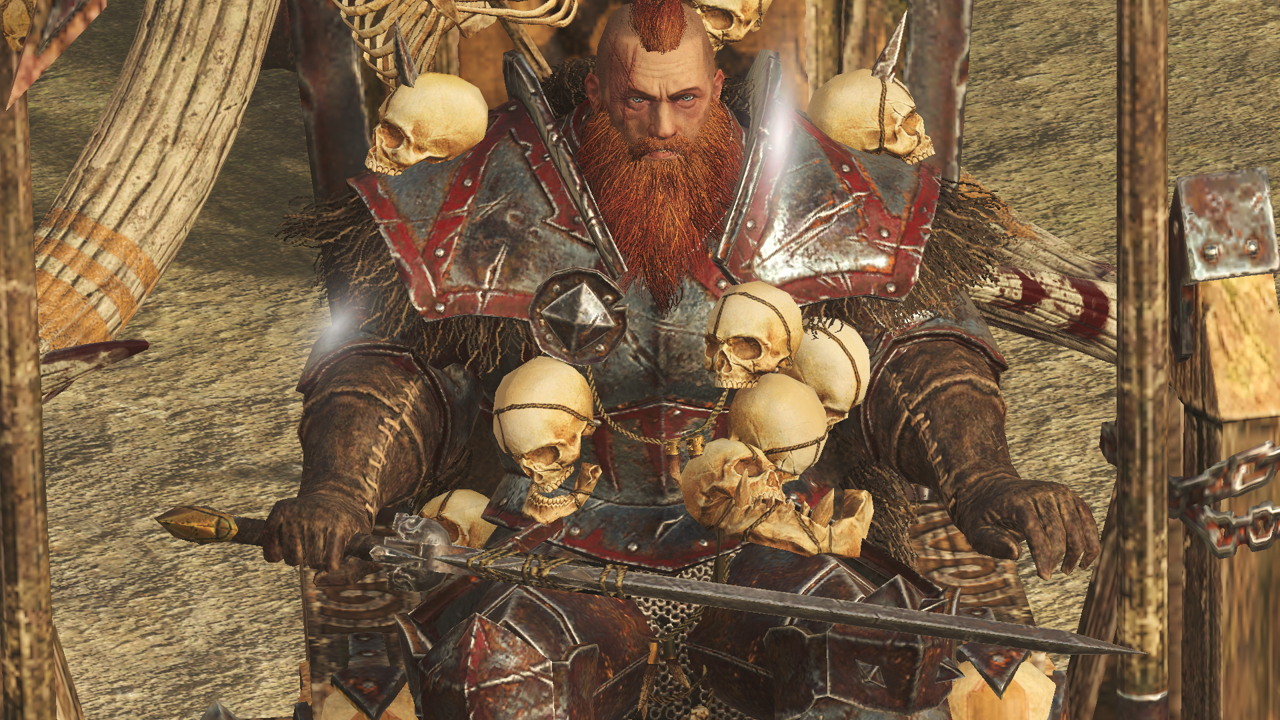
Buyer’s guide
There’s a few additional content for Total War Warhammer you can buy. This is my personal list from greatest to worst. I’ve excluded the Blood DLC as everyone hates it but people keep on buying it every time and I don't want to get involved with controversy.
- Bretonnia: it’s good value for money as it’s free and a fun campaign that feels like medieval knights going on a quest.
- Norsca: they are meant to be fantasy Vikings and they feel like Fantasy Vikings. They ignore regional occupation for ports and major faction capitals and their main mechanic to get a victory is based around razing settlements in the name of a Dark God and getting bonuses. I don’t mind even mind they still obey reginal occupation in game 2.
- Realm of the Wood Elves: a fun range focus faction with a bunch of tree monsters, they also ignore region occupation all together but settlements beyond their trees are weaker. Sadly, you can’t have an army of Treemen as they require a resource called Amber that they get from owning settlements and Amber is also used for upgrading their home tree.
- King and the Warlord: this DLC added the legendary lords Skarsnik for the Orcs, Belegar Ironhammer for the Dwarfs alongside some new units. This was also the first DLC where the lords aren’t part of the same faction as the main one because it has a kinda narrative. Basically, Belegar and Skarsnik are trying to take Karak Eight Peaks, both getting debuffs until they do.
- Chaos Warriors: these guys aren’t fun, they don’t hold any territory and instead bring their civilisation with them in tents. They lack unit variety and you might get bored with back tracking because someone resettled the settlements you destroyed 6 turns ago.
- Call of the Beastmen: okay these guys are fun in Warhammer 2, but they are just Chaos Warriors but worse in this game. They are incredibly hard and you’ll never feel like the top dog as when Chaos comes down, you are just the small guy who helps them. But note I would rate this higher than Norsca if this was a Warhammer 2
- The Grim and the Grave: the first unit pack for Total War warhammer and it’s lacklustre. It’s an Empire VS Vampire Count DLC and the units are honestly terrible, like people only recruit them for a joke or because they’re waiting for better units with the exception of the Mortis Engine because it’s a cool unit. Also, the Knights of the Blazing Sun can only be recruited in one settlement and I’ve never used them, thankfully this issue been fixed in Warhammer 2.









